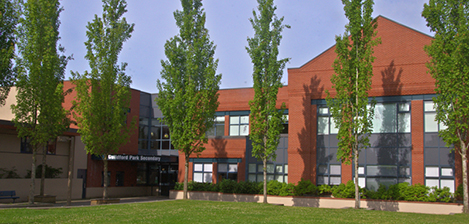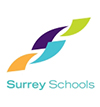WORKSHOP 1
“Comfort Women” & Violence Against Women in War & Peace
Students will learn about the issue of “Comfort Women” and look at the issue through the lens of colonial, military, state, race, class and gender oppression. Since the 1990s, the “Comfort Women” issue has been at the forefront of the global movement combating violence against women during times of war. In 2007, the House of Commons of Canada unanimously passed a resolution to support proper acknowledgment and justice for the “Comfort Women” survivors. Other countries, including the US and the European Union, also passed similar parliamentary resolutions.
Co-Presenters:
Brenda Ball, Director of Brockton School, Independent.
Ms. Ball has been an educator and curriculum developer for over 20 years, in both public and independent schools, and both locally and overseas. Her focus is student engagement, and cultivating curiosity so that students take ownership over their learning and become active citizens. Other educational interests include curriculum innovation, technology integration & multimedia learning, global citizenship and service learning. Brenda was previously the Chairperson of the BC Social Studies Teachers Association Provincial Conference and is currently a curriculum developer on the curriculum review team for BC Social Studies K – 12 program.
Nicki Smeltzer, Enver Creek Secondary.
Ms. Nicki Smeltzer is currently a Social Studies and Humanities teacher at Enver Creek Secondary in Surrey. Nicki is a graduate from both Kwantlen Polytechnic University and Simon Fraser University, with a degree in History and English. Additionally Nicki completed Post Baccalaureate Studies in Inquiry Based Learning. She has been co-presenting the “Comfort Women” Workshop at the Symposium since 2015.
Greg van Vugt, Fraser Height Secondary.
Mr. van Vugt was a participant of the 2008 Peace & Reconciliation Study Tour for Educators during which he personally met survivors of the Asian Holocaust including those of Nanking Massacre, Military Sexual slavery System, Biological Warfare and Slaved Labour. After meeting the Chinese and Korean “comfort women” survivors, Mr. van Vugt made a special trip to the Philippines to also meet with survivors who had been abducted as sexual slaves by the Japanese military during World War II in Asia. Mr. Vugt is also the Past President of Peace & Global Education (PAGE) of BCTF.
WORKSHOP 1F (Dec 7 only)
Les « femmes de réconfort » et les violences à l’encontre des femmes en temps de guerre et de paix
Les étudiants exploreront la question des « femmes de réconfort » à travers diverses formes d’oppression : qu’elle soit de genre, de classe, de race, d’état, qu’elle soit militaire ou coloniale. Depuis les années 90, la question des « femmes de réconfort » est en tête d’un mouvement mondial luttant contre les violences faites aux femmes en temps de guerre. En 2007, la Chambre des Communes du Canada a voté, à l’unanimité une résolution en faveur d’une reconnaissance et d’une justice à l’égard des « femmes de réconfort » survivantes. D’autres pays, tels que les Etats-Unis ainsi que l’Union Européenne, ont voté des résolutions parlementaires similaires.
Présentatrice: Sandrine Legay, Ecole secondaire Jules-Verne, Conseil scolaire francophone de la C.-B.
Professeur agrégé, Mme Legay a débuté sa carrière d’enseignante en France. Coordonnatrice au diplôme du baccalauréat international, elle enseigne actuellement les Sciences Humaines ainsi que l’Histoire IB. Elle a participé à la traduction des ateliers sur les « femmes de réconfort » et sur le viol de Nankin et travaille à la mise en place d’un symposium des droits de l’Homme en français.
WORKSHOP 2
Canadian Hong Kong veterans and Allied POWs: Wounds and Closure
A total of 1,975 Canadian soldiers were sent to defend the British Colony of Hong Kong in 1941. Out of that group, 550 of them never returned home. In this workshop, students will make explicit connections between the Asia-Pacific War and Canada as they investigate the crimes against humanity committed against these Canadian prisoners of war. Students will also examine international agreements that were breached during this time in history. Finally, students will consider ways to bring proper closure to the Canadian Hong Kong veterans and their families.
Presenter:
Ishbel Newstead, Retired from Aldergrove Community Secondary.
Mrs. Newstead retired from Aldergrove Community Secondary in April 2017. She has developed strong interest in Asian Holocaust Education and made presentations on the Rape of Nanking, the stories of the Canadian Hong Kong Veterans, Japanese military sexual slavery system and Japan’s biochemical warfare & human experimentations to senior high students in her different schools. Mrs. Newstead also participated in the 2017 Peace & Reconciliation Study Tour for Educators and thus had the chance to meet with some Asian Holocaust survivors & scholars and to visit historical sites and museums.
WORKSHOP 3
Ethical Dimensions of Imperial Japan’s Biochemical Warfare and Human Experimentation
This workshop will trace the early development of medical and biochemical warfare research of Unit 731 prior to World War II. It will recount plans initiated by the Japanese military to carry these biological weapons to the shores of North America. Lastly we will look at the ethical issues raised by Unit 731, as well as the implications that medical and scientific research have on modern society.
Presenters:
Randy Matheson, Crofton House School, Vancouver (Dec 7)
Mr. Matheson is entering his 36th year of teaching Social Studies and History. He was a member of the 2012 Peace & Reconciliation Study Tour for Educators and visited the Unit 731 Museum in Harbin, in northeastern China where was the headquarters of Japan’s biological and chemical warfare during their occupation.
Danielle Zagar, Westview Secondary School, Maple Ridge (Dec 8)
Ms. Zagar is also Adjunct Professor of Global Competence Certificate Program – Human Rights, Columbia University. Social justice, youth leadership and empowerment, global education, and program and event development are just a few of her many interests. Ms. Zagar has over 16 years of experience as an educator, conference chair, curriculum and program developer in Canada. She met with survivors of the Asian Holocaust at the 2010 “International Conference for Educators on the WWII History in Asia – Forgotten Voices, Living History”. She also participated in the 2017 Peace & Reconciliation Study Tour for Educators and met and met with survivors including those of the Rape of Nanking and Japan’s biochemical warfare & human experimentations.
WORKSHOP 4
Rescuers and Global Citizenship in the Rape of Nanking
A group of over twenty foreigners (mostly American, but also some German, Danish, and Russian) established a neutral area in Nanking, called the International Safety Zone, to shelter Chinese refugees whose lives had been threatened by the invading Japanese soldiers. The committee members of the Safety Zone toiled to provide refugees with basic needs, and more importantly, to protect them from atrocities, often risking their own lives in the process. This workshop helps students to understand the spirit of global citizenship and the roles played by individuals in times of crisis: Perpetrator, Victim, Bystander, or Rescuer. Through an examination of individuals and events in the International Safety Zone, students will connect with history, develop an awareness of the personal strength and positive human qualities demonstrated by the committee members, and investigate what can be learned from their courage.
Presenters:
Danielle Zagar, Westview Secondary School, Maple Ridge (Dec 7).
Ms. Zagar is also Adjunct Professor of Global Competence Certificate Program – Human Rights, Columbia University. Social justice, youth leadership and empowerment, global education, and program and event development are just a few of her many interests. Ms. Zagar has over 16 years of experience as an educator, conference chair, curriculum and program developer in Canada. She met with survivors of the Asian Holocaust at the 2010 “International Conference for Educators on the WWII History in Asia – Forgotten Voices, Living History”. She also participated in the 2017 Peace & Reconciliation Study Tour for Educators and met and met with survivors including those of the Rape of Nanking and Japan’s biochemical warfare & human experimentations.
Daniel Shiu, Lord Tweedsmuir Secondary, Surrey(Dec 8).
Mr. Shiu is a Social Studies teacher of Lord Tweedsmuir Secondary and an active member of Peace & Global Education (PAGE) of BCTF. . He has also been a seasonal instructor of School of Education, UBC. He participated in the 2005 Peace and Reconciliation Study Tour for Educators and met with survivors of the Asian Holocaust including those of the Rape of Nanking.
Workshop 4F (Dec 7 only)
Sauvetage et citoyenneté du monde lors du viol de Nankin
A Nankin, un groupe formé d’une vingtaine de ressortissants étrangers (principalement des Américains, ainsi que des Allemands, des Danois et des Russes), ont établi une zone neutre, que l’on appelait la zone internationale de sécurité, afin d’y abriter les réfugiés chinois dont la vie était menacée par l’invasion japonaise. Les membres du comité international de la zone de sécurité ont travaillé sans relâche pour répondre aux besoins essentiels des réfugiés et, plus particulièrement, pour les protéger des atrocités, et ce souvent au péril de leur propre vie. Cet atelier a pour objectif d’aider les étudiants à comprendre l’esprit de citoyenneté du monde, ainsi que les rôles qu’un individu peut jouer en temps de crise, que ce soit celui qui commet les crimes, la victime, le simple spectateur ou le sauveteur. A travers l’étude des individus et des événements au sein de la zone internationale de sécurité, les étudiants découvriront l’histoire et prendront conscience de la force personnelle et des qualités humaines positives chez les membres du comité. Enfin, ils mèneront une réflexion sur les leçons que nous pouvons tirer de leur courage.
Présentatrice:
Hamida Bendriss, Ecole secondaire Jules-Verne, Conseil scolaire francophone de la C.-B.
Mme Bendriss enseigne au sein du programme Francophone depuis dix-huit ans. Elle a notamment enseigné les Sciences Humaines, le Français Langue Première, Français IB et Théorie de la connaissance. Elle s’implique dans plusieurs organisations reliées à la Justice Sociale, l’inéquité, la diversité, l’éducation aux enfants et à la condition des femmes dans les pays en guerre.
WORKSHOP 5
Forgotten Holocaust – Atrocious Human Rights Violation and its Impact on Victims Now and Then
This workshop features the video documentary, Forgotten Holocaust, which contains stories of the Nanking Massacre, the “Comfort Stations” and forced labour during the Asia-Pacific War. Presenters will assist students in examining the immediate and long-term impacts of atrocious human rights violations against victims.
Co-Presenters:Pat Parungao, Retired from Gladstone Secondary, Vancouver.
Ms. Parungao worked as Head of Vancouver School Board’s Resource Services till 2007, then as Teacher Librarian of Gladstone Secondary School until her retirement in 2015. She was a participant of the 2006 Peace & Reconciliation Study Tour for Canadian Educators during which she personally met survivors of the Asian Holocaust including those of Nanking Massacre, Military Sexual slavery System, Biological Warfare and Slaved Labour. As a teacher librarian, she prepared a comprehensive bibliography related to the Asian Holocaust history for educators’ use.
Susan Pearson,Magee Secondary, Vancouver.
Ms. Susan Pearson is the Department Head of Resource Services, Magee Secondary School. She participated in the 2008 Peace & Reconciliation Study Tour for Educator during which she personally met with survivors of the Asian Holocaust.
Joan Muir, Retired from Eric Hamber Secondary School.
Joan Muir is a retired Teacher-Librarian from Eric Hamber Secondary School. Over her 41 years of teaching, in Ontario and B.C., she has taught in high school and in elementary school. She has served for many years on the executive committees of the Vancouver Teacher-Librarian Association as well as the B.C. Teacher-Librarian Association. She was a long time facilitator in the Roots of Empathy program which works to reduce bullying and violent behavior by teaching young children to be empathic to others.
Brent Schieve, Guildford Park Secondary, Surrey.
Mr. Schieve is the Social Studies Department Head at Guildford Park Secondary. He has led students on various tours to battlefields and historical sites. He participated in the 2011 Peace & Reconciliation Study Tour for Educators, during which he personally met with survivors of the Asian Holocaust.
|




